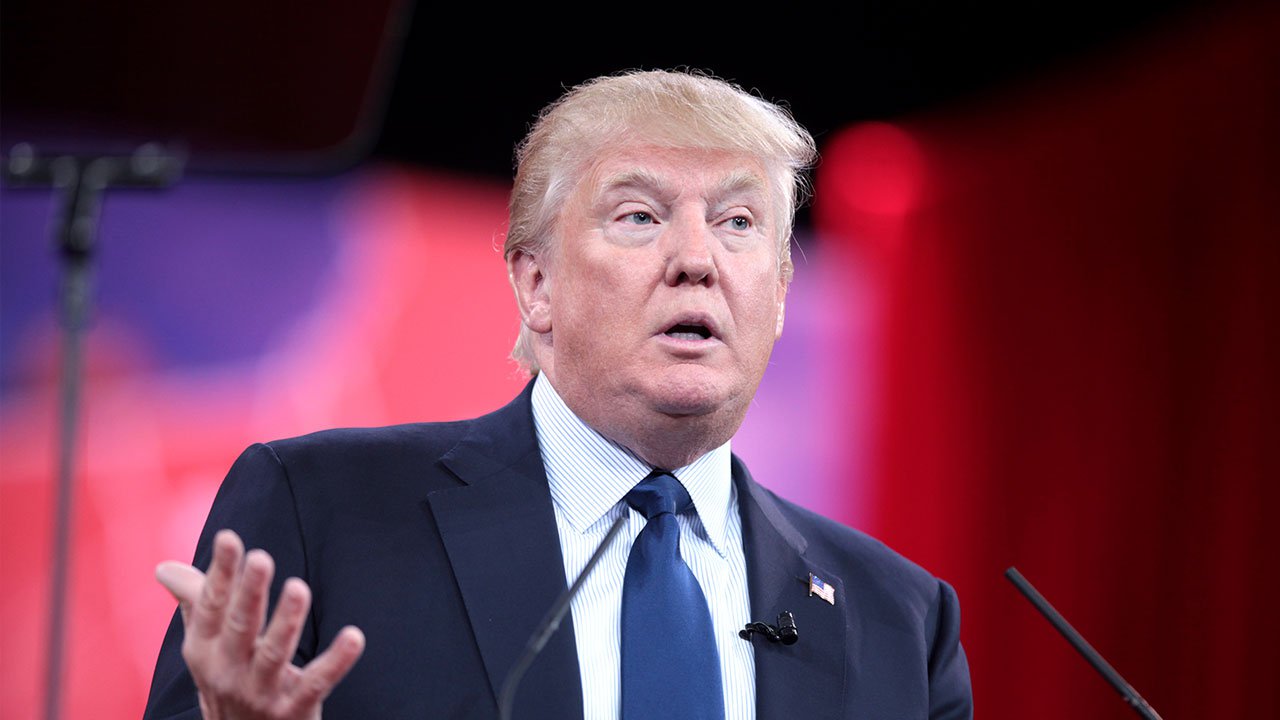Trump once again tries to distance himself from the racists flocking to support him –– this time in California with William Johnson, the head of the American Freedom Party.
Donald Trump has stepped in it. Again.
On Monday, the California Secretary of State’s office released a list of delegates chosen by presumed GOP Presidential nominee for the Golden State’s primary on June 7. Included in the list alongside Republican politicians such as Duncan Hunter and Darrell Issa was William Johnson, head of the white nationalist American Freedom Party (AFP).
The Trump campaign has since issued a statement claiming Johnson appeared on the list due to a “database error.” Johnson was deleted from the campaign’s list in February of 2016, said Tim Clark, Trump’s campaign director for California.
But Trump’s tepid response fails to answer one overwhelmingly obvious question: why was Johnson on the California delegates list in the first place? It’s not as if Johnson’s views are hidden from the public eye.
As early as 1985 Johnson was eagerly extolling on the need for America to be white.
“No person shall be a citizen of the United States unless he is a non-Hispanic white of the European race,” Johnson wrote in an amendment. “Only citizens shall have the right and privilege to reside permanently in the United States.” In most of his recent interviews following the first airing of robocalls in Iowa in January, Johnson openly admits that he is a white nationalist.
Johnson has also been vocally supportive of Trump. Last year, AFP began flooding states with robocalls voicing support for Trump. The calls went to voters in key early states –– New Hampshire, Iowa ––then continued in states like Vermont and Minnesota.
The calls garnered national media coverage, not just because of white nationalists who appeared on them to endorsing Trump, but also because of their racially charged language.
In one call Johnson stated, “The white race is dying out in America and Europe because we are afraid to be called racist.” That called concluded with the message, “Don’t vote for a Cuban. Vote for Donald Trump.”
Johnson also supported Trump by donating $250 to his campaign last September. Trump told the media in February that he would disavow Johnson and return his donation – the same month the Trump campaign now claims it scrubbed Johnson from their California delegates list.
What is clear is that this ugly episode of Trump having –– then disavowing –– racist support is not a surprise. In some instances, Trump refuses to distance himself from these individuals and groups until he absolutely must.
Perhaps that is no surprise. Trump has called for bans on Muslim immigration, retweeted white nationalist tropes about black-on-white crime and demonized Mexicans as “rapists.” He has cited a hate group as his justification for calling for a ban on Muslim immigration and later appointed a staffer to his national security team from that very same group.
The Trump campaign’s hasty move to try to sweep this incident under the rug, as they’ve done on countless occasions during the 2016 election cycle, poses more questions than answers.



